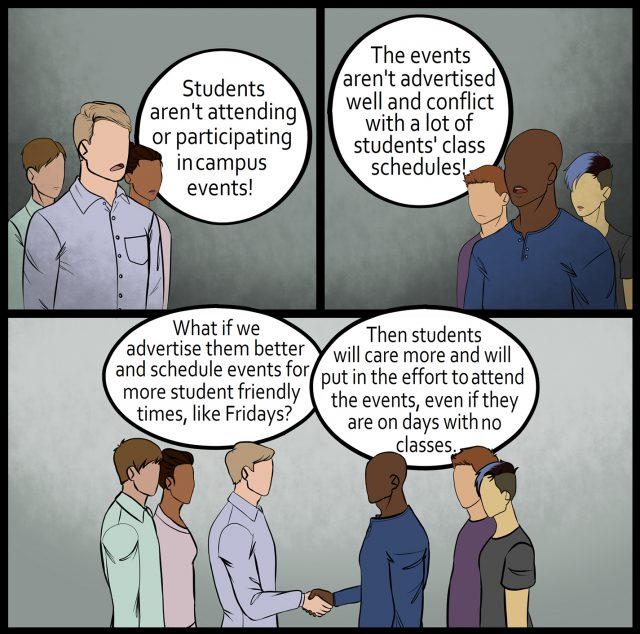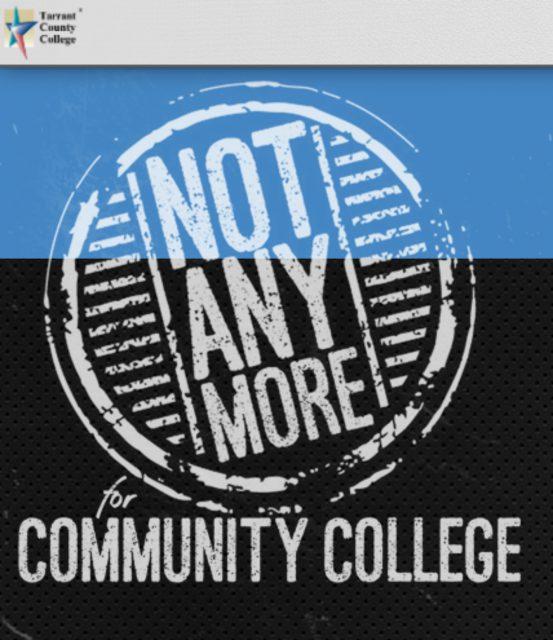TCC is a commuter school, but that doesn’t mean the college can’t have a thriving student life.
All five physical campuses in the district work tirelessly to find ways of increasing student interest in intramural sports, student activities events and more, but it seems to fall short.
The blame can’t all be shouldered on administration, just like it can’t all be shouldered onto students. Each side plays a vital role in student involvement.
For students, old perceptions have played a big role in why the student body cannot break the commuter campus mentality.
If a potential student sees advertising describing the college as a place where they can work x amount of hours in the day and take their full load of courses to get their professional certificate or their associate degree, it engenders a certain mentality. Why would a student who has spare time invest it getting involved at a college that doesn’t exactly sound student-life oriented?
While the marketing for first-time college students has changed to depict the college as a launchpad for futures and a place to “find oneself,” it doesn’t highlight the benefits of campus involvement.
These advertisements don’t emphasize that while TCC lacks intercollegiate sports, it does have intramural tournaments for dodgeball, basketball and weekly volleyball pick-up games. A NE tennis intramural club often competes against four-year universities in the state during tournaments.
A commuter campus has become a blanket mentality, even for students who are attending to knock basics out of the way before transferring to a four-year institution. Students with freer schedules and more time on their hands have no motivation or reason to participate in campus events.
This leads to another issue: overlapping scheduling. Each campus puts together events that interest students but might interfere with a class. Fridays are when the biggest break in class scheduling occurs. This would be a great time to have these campus events or speakers. But if there is an assumption that students won’t be present for events on Fridays, it makes sense for them to schedule on Wednesdays or Thursdays.
This is another point where students also have some responsibility. If the college plans events on a Friday when fewer classes are scheduled, students have to make it a priority to show up even on a day they’re not obligated to.
Another place where the college has dropped the ball in getting students more involved is not actually speaking with students.
Administrators across the district recently started exploring new goals and principles that will impact how they make decisions over the coming years. A panel of students was interviewed during the winter break, but this small panel couldn’t possibly speak for 50,000 students districtwide.
If decisions are being made for students with a student mentality in mind, the voices of the student body should come from a lot of places, not just a panel that met while most students were still on winter break.
For improvement, the students’ mentality also has to change.
As students move into the spring semester, they should consider what being involved on campus means to them and how they can help the college make that happen.































